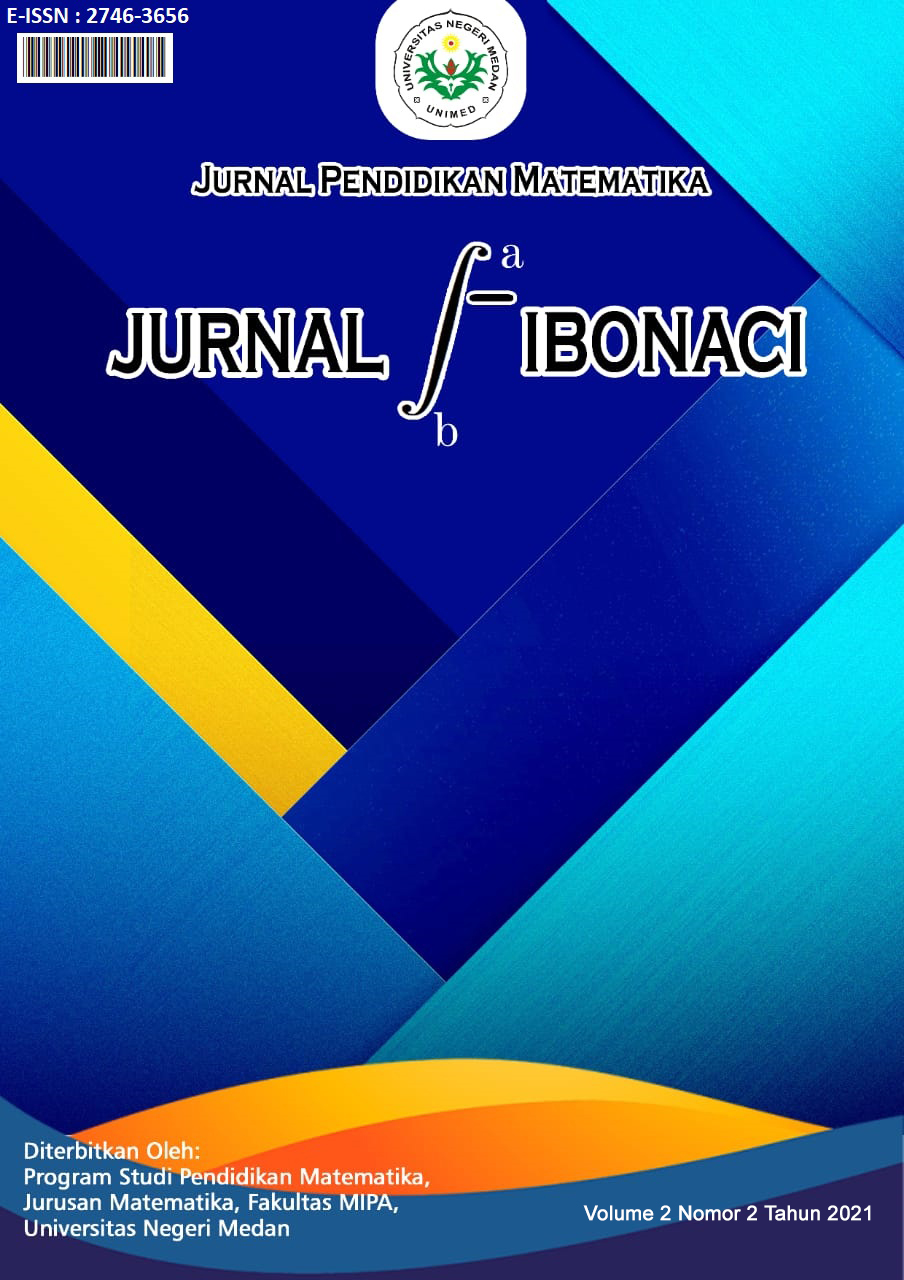Analysis Journal of Habits of Mind Through the Realistic Mathematics Education (RME) Approach in Improving Reasoning Ability
Main Article Content
Abstract
The purpose of this study was to determine: (1)The tendency of the habits of mind towards reasoning abilities, (2) the effect of Realistic Mathematics Education (RME) in improving reasoning abilities, and (3) the advantages and disadvantages of Realistic Mathematics Education (RME). This study uses a qualitative descriptive research with a literature study method in the Digital Library of the State University of Medan. The data analysis technique used is the data analysis technique of Miles and Huberman, which consists of the stages of data collection, data reduction, data presentation, and drawing conclusions. The results of the analysis obtained are: (1) Habits of mind affect reasoning ability with an average effect size value of 1.131687 in the high category. (2) Realistic Mathematics Education (RME) has an effect on reasoning ability with an average effect size value of 1,572938 in the very high category. (3) The advantages of the RME approach are that students are more active in building their own knowledge, the learning process becomes more interesting because it uses real experiences / problems in everyday life that occur around them, and students are given the opportunity to think, argue mathematically on solving problems. which are given. Meanwhile, the advantages of the RME approach are that in the learning process the smarter group dominates than the less intelligent group, the low level of teacher ability results in misconceptions about the material, the use of time in the RME approach process is quite long and the search for questions related to the RME approach. the hard one
Article Details
Section
Articles

This work is licensed under a Creative Commons Attribution-NonCommercial-ShareAlike 4.0 International License.
Authors who publish articles in this journal agree to the following terms:
- Authors retain copyright of the article and grant the journal right of first publication with the work simultaneously licensed under a CC-BY-SA or The Creative Commons Attribution–ShareAlike License.
- Authors are able to enter into separate, additional contractual arrangements for the non-exclusive distribution of the journal's published version of the work (e.g., post it to an institutional repository or publish it in a book), with an acknowledgment of its initial publication in this journal.
- Authors are permitted and encouraged to post their work online (e.g., in institutional repositories or on their website) prior to and during the submission process, as it can lead to productive exchanges, as well as earlier and greater citation of published work (See The Effect of Open Access).
